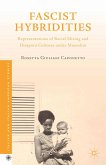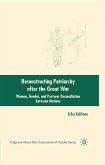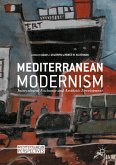"This book is an incredibly clear presentation of why the Algerian War mattered, what happened, the key contexts which produced this conflict and those that shaped it, as well as offering a brilliant entry point to teach or demonstrate how historiography works, how historians do history."
-Todd Shepard, Arthur O. Lovejoy Professor of History, John Hopkins University, USA
"This is a fantastic book which fills an important gap in the historical scholarship. Natalya Vince has managed the seemingly impossible task of presenting a nuanced history of the Algerian War / Algerian Revolution in clear, concise terms."
- Sarah Frank, Associate Lecturer of History, St Andrews University, UK
"This brilliant and beautifully written book achieves the seemingly impossible task of offering a lucid and nuanced guide to the massive body of historical writing on the Algerian war. The book will immediately become essential and indispensable reading not only for students at all levels but also for teachers and historians."
- Julian Jackson, Professor of Modern French History, Queen Mary University of London, UK
Dieser Download kann aus rechtlichen Gründen nur mit Rechnungsadresse in A, B, BG, CY, CZ, D, DK, EW, E, FIN, F, GR, HR, H, IRL, I, LT, L, LR, M, NL, PL, P, R, S, SLO, SK ausgeliefert werden.
Hinweis: Dieser Artikel kann nur an eine deutsche Lieferadresse ausgeliefert werden.
"Vince has made an admirable contribution to understanding the shaping of historical writing. It emphasizes how necessary it is to account for the political and social concerns of the period in which the work is written without forgetting the agenda of the author. It will serve as a critical tool for researchers and students interested in the Algerian War and its legacy." (Patricia M. E. Lorcin, Journal of Modern History, Vol. 95 (3), September, 2023)
Es gelten unsere Allgemeinen Geschäftsbedingungen: www.buecher.de/agb
Impressum
www.buecher.de ist ein Internetauftritt der buecher.de internetstores GmbH
Geschäftsführung: Monica Sawhney | Roland Kölbl | Günter Hilger
Sitz der Gesellschaft: Batheyer Straße 115 - 117, 58099 Hagen
Postanschrift: Bürgermeister-Wegele-Str. 12, 86167 Augsburg
Amtsgericht Hagen HRB 13257
Steuernummer: 321/5800/1497
USt-IdNr: DE450055826
Bitte wählen Sie Ihr Anliegen aus.
Rechnungen
Retourenschein anfordern
Bestellstatus
Storno









